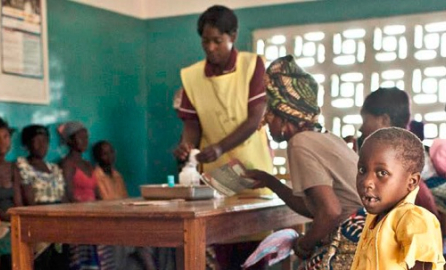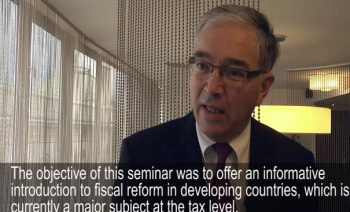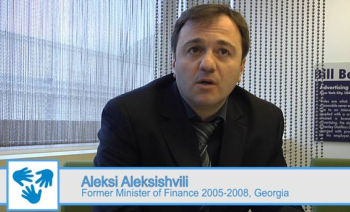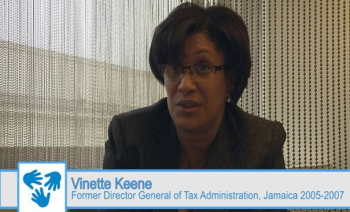Domestic resource mobilization is high on the development agenda, and revolves around how developing countries can raise more revenues through their own tax systems and natural resource management. The idea is to create a less aid-dependent, more nationally-accountable, predictable and stable stream of financing for development and poverty eradication.
Developing countries have made progress in increasing their tax revenue – they now collect 4 – 5 percentage points of GDP more than 15 years ago, according to Sanjeev Gupta, Deputy Director of the IMF’s Fiscal Affairs Department. But at 10-20% of GDP, their tax revenues are still far behind the 30-40% of GDP collected in developed countries.
And while donors help governments in partner countries to increase their tax collection via public financial management and capacity building in tax administrations, their policies in other areas – for example their own tax systems – can undermine these development goals.
Spillovers
Tax rates are a national prerogative set by each country’s government. But in practice, the tax revenues collected are influenced by a host of factors including the tax systems of other countries.
“When developing countries suffer from cross border tax avoidance, this is not only a matter of limited capacity in those countries, it is also a consequence, or spillover effect, of policy decisions made at EU level and in EU Member States,” said Martin Brehm Christensen, a researcher at ActionAid.
There are two kinds of spillovers: base spillovers, where one country’s tax rules directly affect others’ corporate income tax bases; and strategic spillovers, where one country gives concessions such as lower corporate tax rates, and others feel obliged to follow suit with damaging policies.
Developing countries feel the effect far more than developed countries. “The loss of revenue from base spillovers averages 1.3% of GDP in developing countries, compared to 1% of GDP in developed countries,” said Gupta. “That’s a 30% difference.”
In dollar terms, this means African countries alone lose up to $50 billion a year in illicit financial flows - money which could have been invested in better schools, healthcare or infrastructure.
An important part of these illicit flows is multinational companies not reporting their profits in the countries where they make them, but channelling them to low or no-tax jurisdictions. Among Oxfam’s 2016 ranking of the world’s worst tax havens are four EU Member States - the Netherlands, Ireland, Luxembourg and Cyprus.
So far Ireland and the Netherlands have analysed the spillover effects of their tax systems. “We’d like to see all the EU Member States conducting national spillover analyses; and to see the Commission suggesting an EU-wide spillover analysis,” said Brehm Christensen.
“It’s not enough to look at the direct policies and trade transactions an EU Member State has with a specific developing country, as actually the main spillover effect might be indirect through your tax system’s interplay with that of Luxembourg, the Netherlands, or one of the other European tax havens,” said Brehm Christensen.
ActionAid has just published a Guiding Framework for tax spillover analysis which includes a checklist of policy areas that have the potential for negative spillover effects, which include capital gains tax, corporate income tax, residence rules, and withholding taxes. There are also areas with potential for positive spillovers – such as rules on transparency around companies’ accounting practices and beneficial ownership of companies. (See ActionAid’s report here)
“We need a genuine reform of the international tax systems. If we don’t see it begin here in the EU, I don’t think we’ll see it anywhere” said Brehm Christensen. “Better still if we agree on a general set of international tax principals: First principle could be, do no harm to other states.”
Incentives
Calls for transparency and reform go beyond developed countries’ tax systems: Developing countries too need to open up about the tax incentives they offer, according to Gupta.
Tax incentives can help attract investment and businesses, but developing countries often put themselves at a disadvantage by giving up their rights to collect capital gains tax and withholding taxes.
“Developing countries don’t disclose fully how much they are spending on different kinds of incentives, so making them transparent, putting them in the budget as tax expenditures, would help,” said Gupta. “There could be a debate among different stakeholders as to whether the benefits are commensurate with the costs of these expenditures.”
Preliminary data suggest they are not. Calculations by ActionAid suggest that $138 billion is lost every year through the tax incentives that developing country governments offer to large businesses. Meanwhile a survey by the World Bank suggests that the benefits of tax incentives are very slim: 93% of investors in East Africa said they would have invested anyway, without tax incentives.
For Gupta, the other key areas for developing countries to address are value-added tax and income tax. “We think there is scope for raising anywhere between two and four percentage points of GDP more in the medium term.”
International coordination
The European Commission is pushing for tax justice for development on several fronts. “They’ve put tax and international financing for development high on the agenda,” said Luckystar Miyandazi, policy officer at ECDPM’s African Institutions Programme. “They are dealing with a lot of issues, introducing directives on tax avoidance, on tax abuse.”
Most recently, the European Parliament adopted a draft directive that will require all multinational companies in the EU with a turnover above €750 million to report their profits, turnover and taxes on a country-by-country basis. However, this could be weakened by a proposed amendment which would allow companies to avoid reporting ‘commercially sensitive’ information.
Over 100 countries are collaborating on the OECD-led Base Erosion and Profit Shifting (BEPS) action plan, a fight against corporate tax avoidance strategies which artificially shift profits to low-tax or no-tax jurisdictions.
According to DEVCO’s Head of Budget Support and Public Finance Management, Erica Gerretsen, “We need to work together, and we are addressing these matters within the EU notably through the Anti-Tax-Avoidance Package, including its external strategy,” she told a European Development Days audience.
The Platform for Tax Good Governance, an expert group from the European Commission, initiated discussions on the spill-over effects of double tax conventions on developing countries in 2016, and will continue in 2017. The European Commission is also working closely with the IMF Fiscal Affairs Department, World Bank and several EU Member States on strengthening tax systems in partner countries through the Tax Administration Diagnostic Assessment Tool (TADAT).
This is alongside EU capacity building support and technical assistance. “We have Delegations in all developing countries, and as EU plus Member States we are the biggest donor in the world,” said Gerretsen. “We use a specific modality, Budget Support, and through this we enter dialogue with Partner Countries on macroeconomic framework, public financial management, and domestic resource mobilization.”
“We want to ensure coherence between what’s done at policy level in the EU and in the developing world,” said Gerretsen. “And we are advocating to have developing countries more involved in the processes.”
Further reading:
ActionAid’s report “Stemming the spills. Guiding Framework for National Tax Spillover Analyses"
EU working document “Collect More- Spend Better”
EU Consensus for Development (see p.47 for issues around mobilizing domestic resources)
IMF Working Paper on Base Erosion, Profit Shifting and Developing Countries







Log in with your EU Login account to post or comment on the platform.